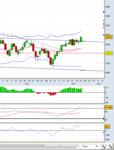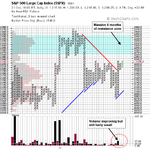Markets swing wildly on headlines from Europe (Chicago Options: ^REURUSD - news)
* Long-term investors steer clear of crisis-ridden markets
* Euro and S&P 500 (SNP: ^GSPC - news) trade in lock-step
NEW YORK (Frankfurt: A0DKRK - news) , Oct (KOSDAQ: 039200.KQ - news) 21 (Reuters) - The EU summit is on. No, wait, it's off. No, hold on, the summit is on, and what's more, now there are two of them.
The daily headlines out of Europe are enough to make a long-term investor's head spin and more importantly, to keep them out of the market altogether.
Markets have see-sawed all week on frequent and sometimes contradictory reports on the success or lack thereof of European leaders to deal with their region's debt crisis.
Stocks have risen on the mere suggestion of a hint of progress, with investors afraid of missing the rally that will follow if politicians finally come up with a solution.
Volume has been muted, generally spiking on sudden rallies and sell-offs. It's a sign investors are avoiding real investment decisions and chasing rallies in what has been a tough year so far.
"People have been burned by reacting to individual news stories only to have them refuted, withdrawn or contradicted," said Stephen Massocca, managing director at Wedbush Morgan in San Francisco. "It's really kind of wait and watch, which is why the volume is so low."
Trading activity has largely been the province of professional traders pinging stocks and other asset classes back and forth using futures, ETFs and blue-chip issues.
Those in the market are trading the euro , oil and stocks tightly together, as correlations between these assets have rarely been higher.
The volatile trading environment reflects the enormity of the euro zone debt crisis and fears that a Greek debt default could engulf the entire region with potentially devastating consequences for the global financial system.
That's worrisome for this reason: Even though European leaders are doubling up on summits this coming week, the vast scope of the problems means solutions are elusive. That's going to keep uncertainty and volatility high -- so look forward to more trading like this.
"The question of the euro zone's very existence in its current form continues to plague the financial markets. Global (Chicago Options: ^RJSGTRUSD - news) equities oscillate from euphoria to despair, depending on the headline," said analysts at Goldman Sachs Investment Strategy Group in a note this week.
The gyrations aren't necessarily indicative of fear and despair playing one another -- the range remains too tight, even considering the rally Friday.
It's more a sign that short-term players are using the headlines to shift large bets on trends in several markets at once. Often they appear to be shifting back the other way on the next headline.
Some have surmised that complicated algorithmic programs with strong name-recognition software are dominating this market, making automatic shifts as soon as headlines containing words such as 'EFSF' and 'Merkel' hit.
But market participants say those programs are the province of the sharpest hedge funds and not much more, with the bulk of the moves coming from firms reacting to shifts in momentum and riding those moves as long as possible.
Momentum traders using computer models often follow the shifts, especially if levels that have served as resistance or support are surpassed. From there, performance chasing follows.
"If you go and look at the trades that react to that data down to the millisecond level you'll see an immediate spike in the futures ... and then you'll see buying across the equities in less than a second, across the S&P 500, major liquid equities," said Chris Bartlett, director at Nobilis Capital, a high frequency trading firm in New York that uses momentum strategies.
"The other part of the equation is the algorithmic and automated and high frequency trading that takes place, (those) who have momentum algos running that see a sudden spike in the buying after the news comes out."
Bartlett said this type of market was perfect for what he termed short-term alpha trades but was frustrating longer-term money managers seeking entry and exit points.
The short-term bets are macro in nature and involve bets on several markets. The 22-day correlation coefficient of the S&P 500 and the euro was at 0.94 on Friday, just shy of 1, a perfect lock-step relationship.
Many investors bet using plain-vanilla or leveraged ETFs. ETFs now account for about 20 percent of daily share volume, according to Credit Suisse (NYSEArca: CSMA - news) , up from about 15 percent at the beginning of 2011.
Some have also fingered ETFs for the increased market volatility, but traders attribute it more to the similar bets being made among sectors, stocks, and the overall market.
Don Bright, director and trader at Bright Trading in Chicago, said he is keeping his time horizon short. He is currently playing in the ProShares UltraShort MSCI Europe , the double-short Europe ETF, but he doesn't plan on holding it long.
"We put that trade on yesterday (Wednesday) because there's still a lot of uncertainty related to the euro zone," Bright said. "I'm short term on that trade and will probably scale out of two-thirds of it by Friday's close, depending on any kind of news events that come out by then. I don't want to be short going into the weekend."


